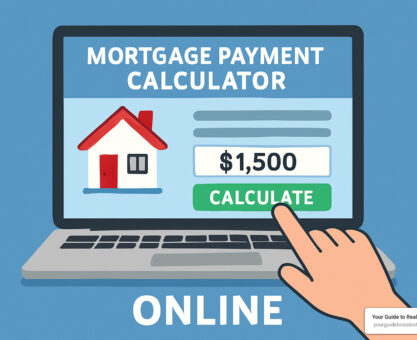The Rise of Virtual Real Estate Assistants: More Deals, Less Paperwork
A virtual real estate assistant is a remote professional who handles administrative, marketing, and transaction-related tasks for real estate agents, brokers, and investors. Here’s what you need to know:
| Virtual Real Estate Assistant Snapshot |
|---|
| Cost Range: $10-50 per hour depending on location and experience |
| ROI Timeline: Most agents recover investment within 60 days |
| Top Tasks: Lead generation, transaction coordination, MLS listings, marketing |
| Time Saved: 15+ hours weekly according to most service providers |
| Hiring Options: Agencies, freelancers, specialized firms |
Are you drowning in paperwork instead of closing deals? You’re not alone. The average real estate agent spends over 15 hours weekly on administrative tasks that don’t directly generate revenue.
“People ask me how I can afford a virtual assistant. I can’t afford NOT to have one!” This sentiment from a successful agent captures why virtual real estate assistants have become essential for growth-minded professionals.
These remote team members handle everything from updating MLS listings and scheduling showings to managing social media and following up with leads—all while you focus on in-person client relationships and closings.
According to MyOutDesk, real estate companies saved over $40 million in 2023 alone by leveraging virtual assistants instead of hiring full-time in-house staff. With no office space requirements, benefits costs, or downtime expenses, the math simply makes sense.
The best part? Most agents report increased productivity and deal flow within just 60 days of bringing a virtual assistant onboard, making it one of the fastest ROI investments in the industry.
Whether you’re a solo agent looking to scale, a team leader needing administrative support, or an investor juggling multiple properties, a virtual real estate assistant could be the missing piece that transforms your business from overwhelmed to optimized.

What is a Virtual Real Estate Assistant?
A virtual real estate assistant is your remote right hand in the real estate business. Unlike traditional office staff, these professionals work from their own spaces—sometimes across the country or even internationally—handling all those time-consuming tasks that keep you from focusing on what actually makes you money.
They’re the specialized remote team members who truly understand real estate’s unique demands. They speak your language when it comes to property listings, transaction timelines, and lead nurturing. Plus, they’re already familiar with the digital tools that power today’s real estate businesses.
“Navigating real estate without an assistant can feel like trying to find your way through a maze blindfolded,” one veteran agent told me after making the switch to virtual support. “Now my VA handles the maze while I focus on closing deals.”

What makes these professionals particularly valuable is their flexibility. Working as independent contractors or through specialized agencies means you avoid those hefty overhead costs of traditional employees. Need someone part-time? Full-time? Working your exact hours despite being thousands of miles away? A good virtual real estate assistant can adapt to whatever your business needs.
The best part is how they customize their support to your specific real estate niche. Whether you’re selling homes, managing commercial properties, or flipping investment properties, the right assistant will shape their services to match your unique business model.
Virtual Real Estate Assistant vs. General VA
Not all virtual assistants bring the same value to your real estate business. While a general VA can certainly manage your inbox and calendar, a specialized virtual real estate assistant brings industry knowledge that dramatically multiplies their worth.
Here’s what makes real estate VAs special:
They understand real estate industry regulations and terminology that would leave general VAs scratching their heads. They’re familiar with MLS access protocols and can confidently manage your listings. Their CRM proficiency extends to real estate-specific systems, not just generic platforms. They recognize compliance requirements and understand why certain documents need to be handled with particular care.
A broker I spoke with put it perfectly: “I tried a general VA first and spent more time explaining real estate concepts than I saved. Switching to a specialized real estate VA was like going from dial-up to high-speed internet.”
This difference becomes crystal clear during time-sensitive transactions. A general assistant might not grasp why missing a contingency removal deadline could kill a deal, while a virtual real estate assistant instinctively prioritizes these critical timeline events.
Yes, you’ll pay about 15-30% more for this specialized knowledge compared to general VAs. But when you factor in the efficiency gains and minimal training time, most agents find this premium is money extremely well spent. The ROI speaks for itself when your deals close smoothly and your business grows while you’re actually enjoying your work again.
Key Tasks & Responsibilities That Move the Needle
The true value of a virtual real estate assistant comes from their ability to handle the tasks that eat up your day without directly filling your bank account. When you delegate these responsibilities, you free yourself to focus on what actually grows your business—meeting clients and closing deals.
Here are the game-changing responsibilities that make the biggest impact on your bottom line:
Lead Generation and Nurturing
Your virtual real estate assistant becomes your behind-the-scenes lead machine. They’ll set up those automated email campaigns that keep nurturing prospects while you sleep. Many agents find their VAs excel at cold calling expired listings and FSBOs—doing the prospecting groundwork that’s necessary but time-consuming.
“My VA responds to all my Zillow and portal inquiries within minutes,” shares one top producer. “By the time leads reach my calendar, they’re pre-qualified and ready for a meaningful conversation. No more wasting time with tire-kickers!”
Marketing Support
Think of your VA as your personal marketing department. They’ll create and schedule your social media content, design eye-catching property flyers, and manage your email newsletters. Many virtual real estate assistants become experts at updating website listings and coordinating with photographers for that perfect twilight exterior shot.

Transaction Coordination
This is where specialized real estate VAs truly shine. They’ll prepare and manage all that contract paperwork that used to keep you up at night. Your assistant will track contingency deadlines, communicate with all parties (from lenders to inspectors), and make sure every document gets signed on time. No more missed deadlines or frantic last-minute scrambles!
Administrative Support
The day-to-day stuff that clogs your productivity pipeline gets handled seamlessly. Calendar management, email organization, database maintenance, document preparation—all those little tasks that add up to huge time drains. Your VA can even handle your travel arrangements and expense tracking, keeping your business running smoothly while you focus on revenue-generating activities.
One agent who fully acceptd delegation shared: “I went from spending 65% of my time buried in paperwork to spending 80% of my time face-to-face with clients. My closings increased by 40% in just three months. My only regret is not hiring a VA years earlier!”
The most effective virtual real estate assistants don’t just complete isolated tasks—they take ownership of entire processes. Rather than just posting what you tell them to on Facebook, a skilled VA will develop a content strategy, create engaging posts, schedule them strategically, monitor engagement, and provide you with performance reports.
As one industry coach puts it, “The goal isn’t to randomly offload busy work; it’s to completely remove entire categories of work from your plate so you can focus exclusively on the dollar-productive activities that require your personal touch.”
For a deeper dive into the services that virtual assistants can provide, check out our comprehensive guide to real estate virtual assistant services.
7 Best Types of Virtual Real Estate Assistant Providers
When it comes to finding the perfect virtual real estate assistant, you’ve got options—lots of them! Think of it like house hunting: each provider type has its own unique “floor plan” that might work beautifully for your specific business needs. Let’s explore the seven most effective models out there, so you can find your perfect match.
1. Full-Service Offshore Agencies
These established companies like MyOutDesk are essentially the one-stop shops of the virtual assistant world. They handle everything from hiring and training to managing assistants primarily based in the Philippines or other international locations.
Key Benefits:
– Significant cost savings (often 60-70% less than US-based assistants)
– Rigorous vetting processes (MyOutDesk accepts only 2.2% of applicants)
– Replacement guarantees if an assistant doesn’t work out
– Built-in management oversight and quality control
– Often provide training specific to real estate tasks
I recently spoke with a broker who told me, “My offshore VA works, works, works. There are no meetings, breaks, or downtime eating into productivity. They’re focused on executing tasks for a full eight hours.”
These agencies typically charge $10-20 per hour, with assistants working full-time (40 hours/week) schedules. The best providers conduct thorough background checks, verify English proficiency, and ensure assistants have reliable internet connections and appropriate technology.
2. Nearshore Specialized Talent Pools
If you’re looking for that sweet spot between cost savings and cultural alignment, companies like Virtual Latinos might be your answer. They focus on providing assistants from Latin America, offering that perfect middle ground.
Key Benefits:
– Bilingual capabilities (English/Spanish)
– Similar time zones to the US for real-time collaboration
– Cultural familiarity with US real estate practices
– Typically more affordable than US-based assistants
– Often college-educated professionals
One agent from a diverse market shared, “Having a bilingual VA has opened up an entirely new market segment for my business. My assistant can communicate with Spanish-speaking clients in their preferred language, making them feel valued and understood.”
Pricing typically ranges from $13-25 per hour depending on experience level, with options for both part-time and full-time arrangements.
3. Niche Transaction Coordination Firms
Think of these specialized providers as the expert navigators of the closing process. They focus exclusively on transaction coordination—managing a real estate deal from contract to closing, with all the paperwork and deadline tracking that entails.
Key Benefits:
– Deep expertise in transaction workflows and compliance
– Familiarity with state-specific requirements and documentation
– Systems for tracking critical deadlines and contingencies
– Experience with common transaction management platforms
– Often staffed by former real estate professionals
“My transaction coordinator catches things I would have missed,” admitted one high-volume agent I interviewed. “Last month, she noticed a missing disclosure that could have delayed closing by weeks. That kind of expertise is invaluable.”
These services typically charge either a flat fee per transaction ($300-500) or monthly retainers based on volume expectations.
4. On-Demand Freelancer Marketplaces
Platforms like Upwork are like the dating apps of the VA world—they connect you directly with individual assistants who specialize in real estate support, allowing for maximum flexibility.
Key Benefits:
– Pay-as-you-go with no long-term commitments
– Wide selection of candidates with varied skill sets
– Transparent reviews from previous clients
– Ability to scale hours up or down as needed
– Direct communication with your assistant
“I started with just 5 hours per week for basic admin tasks,” explained a new agent who took this route. “As I grew more comfortable delegating and my business expanded, I gradually increased to 20 hours weekly. The flexibility was perfect for my evolving needs.”
Rates vary dramatically based on experience and location, ranging from $5/hour for entry-level offshore assistants to $50+/hour for experienced US-based professionals with extensive real estate backgrounds.

5. AI-Augmented VA Platforms
Welcome to the future! These emerging services blend human virtual assistants with artificial intelligence tools to create a boostd efficiency machine.
Key Benefits:
– 24/7 availability through AI chatbots for initial inquiries
– Automated follow-up systems with human oversight
– Smart routing of tasks based on urgency and type
– Data analysis to improve response strategies
– Often integrate with popular real estate CRMs
A tech-forward team leader told me, “The combination of AI for immediate response and a human VA for personalization has transformed our lead conversion. No lead waits more than 5 minutes for initial contact, regardless of when they reach out.”
These hybrid services typically operate on subscription models ranging from $500-2,000 monthly depending on features and volume. Scientific research on AI productivity shows these tools can significantly improve response rates and conversion.
6. Hybrid US-Based Teams with Minute Billing
Some providers offer US-based virtual real estate assistants who work on a minute-by-minute billing model. Think of it as the Uber of virtual assistance—you only pay for what you use.
Key Benefits:
– Only pay for actual productive time
– No minimum commitments or unused hours
– Local phone numbers for client-facing calls
– Call recording for quality assurance and training
– Cultural and accent alignment for client communication
A previously skeptical broker shared, “The minute-based billing model eliminated my concerns about efficiency. I can see exactly what tasks were completed and how long they took, which has actually helped me improve my own processes.”
These services typically charge premium rates ($25-50/hour) but converted to minute-by-minute billing, with no prepayment requirements.
7. Solo Boutique Assistants
These are individual professionals who operate their own virtual assistant businesses, typically serving a limited number of real estate clients with high-touch support—think of them as the boutique shops in a world of department stores.
Key Benefits:
– Deep personal relationship and understanding of your business
– Consistent point of contact for you and your clients
– Often bring prior real estate industry experience
– Highly customized workflows and communication styles
– Flexibility to evolve with your business needs
“My VA feels more like a business partner than an assistant,” said one luxury real estate specialist I interviewed. “She knows my clients by name, understands my communication style, and anticipates needs before I even express them. That level of partnership is priceless.”
Solo practitioners typically charge $25-50/hour depending on experience and specialization, with minimum weekly or monthly commitments.
The key to finding the right virtual real estate assistant provider isn’t just about cost—it’s about matching your work style, business needs, and growth goals with the right service model. Many successful agents actually start with one provider type and transition to another as their business evolves.
How to Hire & Onboard the Right Virtual Real Estate Assistant
Finding and bringing the perfect virtual real estate assistant into your business isn’t just about posting a job ad and hoping for the best. It’s about creating a relationship that transforms your business—one that frees you to focus on what you do best while your assistant handles the rest.
Step 1: Define Your Needs and Expectations
Before you start scrolling through candidate profiles, take a moment to get crystal clear on what you actually need. Grab a cup of coffee and make a list of the tasks that consume your time without directly generating income.
“The clearer you are about what you need, the more likely you’ll find the right match,” says one real estate coach who’s helped hundreds of agents hire VAs. “Vague job descriptions lead to misaligned expectations and disappointment.”
Think about the specific skills your ideal assistant should have. Do you need someone who can manage your social media presence? Update MLS listings? Handle transaction paperwork? The more specific you can be, the better your chances of finding someone who fits like a glove.
Step 2: Choose the Right Hiring Channel
Not all virtual real estate assistant providers are created equal. Your needs assessment should guide which hiring path makes the most sense for your business.
If budget is your primary concern, an offshore agency might be perfect. Need someone who can speak fluent Spanish to your clients? A nearshore provider from Latin America could be ideal. Looking for specialized transaction coordination? A niche firm might be your best bet.
Consider your own management style too. Do you prefer hands-on direction or would you rather have an agency handle supervision? Be honest about how much time you can dedicate to managing your assistant.
Step 3: Create a Compelling Job Posting
Whether you’re working with an agency or hiring directly, craft a job description that attracts qualified candidates while also selling the opportunity.
“The best job posts sell the opportunity as much as they list requirements,” explains a recruiting specialist. “Explain how this role contributes to your business success and what growth opportunities exist.”
Give your posting a clear, keyword-rich title like “Real Estate Transaction Coordinator Virtual Assistant” and detail not just what you need, but what success in the role looks like. The best assistants are looking for more than just a paycheck—they want to make a meaningful contribution.
Step 4: Screen and Interview Candidates
Now comes the fun part—finding that perfect match! Develop a systematic screening process that helps you identify not just competence, but compatibility.

During interviews, look beyond technical skills to assess communication abilities and problem-solving approach. Ask questions like, “How would you handle a client who needs immediate attention while you’re working on a deadline-sensitive task?” Their answer will reveal how they prioritize and think on their feet.
Don’t skip the reference checks, either. A quick conversation with previous clients can reveal insights that would never come up in an interview.
Step 5: Set Up Proper Documentation
Before your new assistant starts tackling your to-do list, make sure you’ve covered the legal bases. This isn’t the fun part, but it’s essential for protecting your business and client information.
At minimum, you’ll need:
– An independent contractor agreement
– A confidentiality and non-disclosure agreement
– Clear data security protocols
These documents not only protect you legally but also set clear expectations from the start. They show your new assistant that you take your business—and their role in it—seriously.
Step 6: Create an Effective Onboarding Plan
The first few weeks with your new virtual real estate assistant will set the tone for your entire working relationship. A thoughtful onboarding process can make all the difference between frustration and success.
“The onboarding phase is where most VA relationships succeed or fail,” emphasizes one experienced broker. “Invest time upfront to train properly, and you’ll reap the benefits for months or years to come.”
Start with an overview of your business, your values, and your vision. Help them understand not just what you do, but why you do it. Then move into specific systems and processes, providing access and training for the tools they’ll need to succeed.
Most assistants want to impress you. Give them the resources they need to do so, including clear documentation of your processes and expectations.
Step 7: Start with a Pilot Project
Even with careful screening and thorough onboarding, you won’t truly know if someone is a fit until you work together. That’s why starting with a defined trial period or specific project makes so much sense.
“I always start new VAs with a 30-day trial focused on one core process,” shares a team leader who manages multiple assistants. “It’s enough time to evaluate their work quality, communication style, and ability to learn our systems.”
Choose a project that’s important but not urgent, giving your new assistant room to learn without immediate pressure. This approach reduces risk for both parties and creates a clear evaluation point.

Cost Breakdown & ROI Expectations
Let’s talk money. Understanding what a virtual real estate assistant costs—and what return you can expect—helps you make a sound business decision.
Most virtual assistants charge between $10-50 per hour, with the rate varying based on location, experience, and specialization. If you’re looking at a dedicated assistant working 20-40 hours weekly, expect to invest between $1,000-2,400 per month.
The good news? According to industry data, most agents recover their VA investment within just 60 days. One study even reported business increases of up to 322% after implementing a virtual assistant strategy.
“Track your numbers before and after hiring,” recommends a data-driven broker. “Measure metrics like lead response time, follow-up consistency, and conversion rates. The improvement in these areas directly impacts your bottom line.”
You’re not just paying for task completion—you’re buying back your time to focus on high-value activities like meeting clients, negotiating deals, and growing your business.
Training & Communication Best Practices
The success of your relationship with your virtual real estate assistant hinges on how well you communicate and train them. Clear, consistent communication creates confidence on both sides.
Create detailed standard operating procedures (SOPs) for each task or process. These don’t have to be fancy—even a simple document or recorded video walking through the steps can make a world of difference. Start with simple tasks and gradually increase complexity as your assistant builds confidence.
“Communication clarity is everything in a remote relationship,” emphasizes a broker who manages a team across multiple time zones. “We use a simple traffic light system—green for on track, yellow for at risk, red for blocked—that gives me instant visibility into project status.”
Set clear expectations about communication channels and response times. Should urgent matters come through text while routine updates stay in email? When should they expect responses from you? Clarity here prevents frustration on both sides.
Finally, don’t forget to acknowledge good work. Virtual assistants don’t get the benefit of casual office recognition, so make a point to regularly express appreciation for jobs well done. A little recognition goes a long way toward building a motivated, engaged assistant who’s invested in your success.
For more detailed guidance on building essential skills for your real estate business, check out our comprehensive guide to real estate agent skills.
Tech Stack Every Virtual Real Estate Assistant Should Master
When it comes to maximizing the value of your virtual real estate assistant, the right technology makes all the difference. Think of tech tools as the bridge that connects you and your VA across distances, enabling seamless collaboration that feels almost like having someone in the next room.
Core Productivity Tools
The foundation of any successful virtual relationship starts with reliable productivity tools. Your virtual real estate assistant should be comfortable navigating Google Workspace or Microsoft 365 for daily operations—managing your email, organizing your calendar, and creating professional documents.
“I was skeptical about someone handling my inbox remotely,” admits Samantha, a veteran Realtor. “But once my VA mastered my email organization system, I stopped missing important messages and saved about two hours daily.”
Project management platforms like Trello, Asana, or Monday.com provide the visual structure that keeps tasks from falling through the cracks. Meanwhile, communication tools like Zoom, Slack, or Microsoft Teams create the real-time connection that builds trust and clarity.
For security, a password manager like LastPass or 1Password is non-negotiable—it allows you to share access without sharing actual passwords, maintaining both convenience and security.
Real Estate Specific Applications
The real differentiator between a general VA and a specialized virtual real estate assistant is their familiarity with industry-specific software.
Your CRM system serves as the heartbeat of your business, so your assistant should be comfortable navigating platforms like Follow Up Boss, Wise Agent, Realvolve, or BoomTown. A skilled VA doesn’t just input data—they leverage the CRM to nurture relationships and track opportunities.
Transaction management becomes infinitely smoother when your assistant understands DotLoop, SkySlope, or Paperless Pipeline. Many agents report that proper transaction coordination through these platforms alone justifies the entire cost of their VA.
MLS access and tools vary by location, but your assistant should understand how to steer your local system for listing management and market research. Similarly, e-signature solutions like DocuSign or HelloSign have become essential for keeping deals moving forward efficiently.
Marketing and Content Creation
Today’s real estate success depends heavily on digital presence, making marketing tools a critical part of your VA’s arsenal.
Canva has revolutionized design capabilities for non-designers, allowing your virtual real estate assistant to create eye-catching property flyers, social graphics, and marketing materials without expensive design software. For more advanced needs, some VAs bring Adobe Creative Suite skills to the table.
“My VA creates and schedules an entire month of social content in one afternoon,” shares Michael, a busy broker. “What used to take me hours every week now happens automatically, and my online presence has never been stronger.”
Social media management tools like Hootsuite, Buffer, or Later help your assistant maintain consistent posting schedules across platforms. Email marketing platforms such as Mailchimp, Constant Contact, or ActiveCampaign enable professional newsletters and drip campaigns that keep your name in front of prospects.
Video has become increasingly important, making basic video editing skills using Camtasia, iMovie, or Loom valuable for creating property walkthroughs, testimonials, and educational content.
Financial and Business Management
The backend of your business deserves just as much attention as the client-facing side. A comprehensive virtual real estate assistant can help manage the financial aspects that many agents prefer to avoid.
QuickBooks or FreshBooks provide the structure for tracking expenses and preparing for tax time. Mileage tracking apps like MileIQ or Everlance ensure you capture every deductible mile. Commission calculation tools—whether specialized software like Splits and BrokerMint or custom spreadsheets—help forecast income and track production.
For performance analytics, tools like Google Data Studio or Microsoft Power BI transform raw data into actionable insights that guide business decisions.

“The right tech stack creates a multiplier effect,” explains a tech-savvy team leader. “When your VA can seamlessly move between systems without your involvement, your business operates at maximum efficiency.”
Many virtual real estate assistant providers offer pre-training in popular platforms, but you should expect to provide access to your specific systems and some customized training on your workflows.
Security & Compliance Essentials
Working with someone remotely requires thoughtful attention to security practices that protect both your business and your clients.
Security Best Practices should include two-factor authentication on all accounts, role-based access that limits permissions to only what’s necessary, and separate user accounts rather than shared logins. Establish clear protocols for handling sensitive information, use secure file sharing methods, and consider cyber liability insurance as an added protection layer.
The compliance considerations for real estate are significant and vary by location. Your assistant should understand relevant regulations in your market and follow established guidelines when representing your business. Creating templates for compliant communication, developing transaction checklists, and maintaining proper independent contractor documentation helps keep your business above board.
“Data security isn’t optional—it’s essential,” warns James, a broker who learned the hard way. “One compromised password led to a nightmare scenario that took weeks to resolve. Now we have strict security protocols that every team member must follow.”
Many successful agents create a formal data security policy that virtual assistants acknowledge during onboarding—a small step that prevents major headaches down the road.
The right technology, properly implemented, transforms a virtual real estate assistant from a basic task-taker into a powerful business accelerator. When your systems work together seamlessly, the physical distance between you and your assistant becomes completely irrelevant to your success.
Frequently Asked Questions about Virtual Real Estate Assistants
How much does it cost to hire a virtual real estate assistant?
When it comes to budgeting for a virtual real estate assistant, the investment varies quite a bit depending on several key factors:
Geographic location makes a significant difference in pricing. Assistants based in the Philippines typically charge between $10-20 per hour, offering substantial savings. Those from Latin America usually fall in the $15-25 hourly range, while US-based VAs command premium rates of $25-50 hourly.
Experience naturally affects the price tag too. Someone just starting out with 1-2 years under their belt might charge $10-15 hourly, while a seasoned pro with 5+ years of specialized real estate knowledge could ask for $30+ per hour.
“Consider the value of your own time when evaluating costs,” suggests a productivity coach I recently spoke with. “If you bill $200/hour for client work but spend 15 hours weekly on $20/hour tasks, that’s $3,000 of opportunity cost. Paying $1,500 monthly for a VA creates a net gain of $1,500.”
The service model also impacts pricing. Agency-based assistants often include management oversight and quality control in their rates, while independent contractors might offer lower hourly rates but require more hands-on management from you.
Many providers offer package deals that can save you money. A typical 20-hour weekly package might run $1,500-1,800 monthly, bringing the effective hourly rate down to $18-22.50.

What skills should I look for when interviewing candidates?
Finding the right virtual real estate assistant means looking beyond just an impressive resume. You’ll want someone with a blend of technical abilities, people skills, and real estate knowledge.
On the technical front, look for proficiency with relevant software platforms you use daily. A typing speed of at least 50 WPM ensures they can keep up with busy days, while basic graphic design skills will come in handy for marketing materials. Data entry accuracy is non-negotiable—small mistakes can lead to big problems in real estate!
“Technical skills can be taught, but attitude and aptitude are innate,” shared a broker who’s hired multiple VAs over the years. “I look for candidates who demonstrate resourcefulness, attention to detail, and a genuine interest in learning about real estate.”
The soft skills often make or break a working relationship. Clear communication (both written and verbal) tops the list, followed by problem-solving abilities and solid time management. You want someone who’ll speak up proactively when challenges arise, not disappear when things get complicated. Since they’ll be working remotely, self-motivation and independence are crucial traits.
Real estate knowledge gives candidates a significant edge. Familiarity with transaction timelines means they understand why certain deadlines are non-negotiable. Knowledge of industry terminology prevents constant explanations on your part, while experience with MLS systems and lead nurturing processes means they can hit the ground running.
Many agents recommend including a practical skills assessment during interviews. Have candidates create a property flyer, respond to a sample client inquiry, or organize a mock transaction checklist to see their skills in action.
How do I measure the ROI of my virtual real estate assistant?
Tracking the return on your virtual real estate assistant investment helps justify the expense and spotlights opportunities for improvement. I’ve found there are several meaningful metrics worth monitoring:
Time savings often provide the most immediate and visible benefit. Track hours freed up for money-making activities like client meetings and negotiations. Note improvements in response times to leads and how much faster transactions move through your pipeline.
“I track three simple numbers weekly,” a data-focused agent told me recently. “Leads contacted within 5 minutes, follow-up touches per prospect, and appointments set. All three improved by over 200% within three months of hiring my VA, directly impacting my bottom line.”
Business growth indicators tell a compelling story too. Watch for increased consistency in lead follow-up, growth in listing presentations scheduled, and improvements in client satisfaction. Many agents see significant expansion in their marketing reach once a VA takes over content creation and distribution.
The financial metrics make the business case crystal clear. Track additional Gross Commission Income generated since bringing your VA on board. Compare your cost per transaction before and after implementation. Monitor how your marketing cost per lead acquisition changes, and calculate administrative costs as a percentage of overall revenue.
Creating a simple dashboard to monitor these metrics before and after hiring your assistant provides tangible evidence of their impact on your business. Most agents find the data tells a compelling story within just 60-90 days of bringing a VA on board.
Conclusion
The real estate landscape is always changing, but one truth remains: your success depends on how much time you spend on activities that actually make money. A virtual real estate assistant offers the perfect solution to this age-old challenge.
Throughout this guide, we’ve seen how these remote professionals bring a powerful combination of specialized knowledge, flexible support, and cost-effectiveness that can completely transform how your business operates. From tackling those never-ending administrative tasks to coordinating transactions, managing your marketing efforts, and keeping your leads warm, a skilled VA frees you to focus on what you truly excel at—building meaningful relationships and closing deals.
The numbers don’t lie—agents who accept virtual assistance report saving more than 15 hours every week, seeing increased deal flow, and typically earning back their investment within just 60 days. Whether you prefer an offshore agency, a specialized transaction coordinator, or something in between, there’s a solution that fits your unique budget and business needs.
Here at YourGuideToRealEstate.net, we firmly believe that smart delegation is the secret ingredient to growing your business without sacrificing your personal life or sanity. By following the hiring, onboarding, and management practices we’ve outlined, you can build a truly productive partnership with a virtual assistant that drives sustainable growth for years to come.
Wondering what your next step should be? Start by taking a hard look at which tasks are currently eating up your time without directly contributing to your bottom line. This simple task audit will help you get crystal clear about exactly what type of virtual support would create the biggest positive impact on your business.
In today’s ultra-competitive market, the real question isn’t whether you can afford to hire a virtual assistant—it’s whether you can afford not to have one on your team.
Technology and delegation aren’t just trends in real estate—they’re essential strategies for future-proofing your business. The most successful agents aren’t necessarily the ones who work the hardest; they’re the ones who work the smartest by leveraging the right support at the right time.
Your future self will thank you for making this investment in your business today.





















